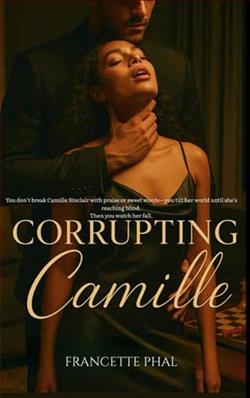Page 21 of Coram House
“Compliance is very important,” Rooney says.
“Yes, thank you, Fred,” Bill replies acidly. He turns back to me, his voice now schoolteacher bright. “Ready?”
“Lead the way,” I say, wondering what the hell that whole exchange was about.
Bill leads me to the front of Coram House. Both the wind and the sounds of machinery have stopped, leaving us in silence. The doors loom larger up close—ten feet of heavy, polished oak. So heavy I doubt a child could open them, even without the metal chain currentlywound through the door handles. Once you went in, someone would have to let you out.
“Got a sign painter up from Boston,” Bill says.
At first, I’m not sure what he’s talking about. Then I see the wordsSUNRISE HOUSEpainted in gold script above the door. I murmur something I hope he’ll take for enthusiasm.
Bill inserts a key into the padlock and the chain slithers onto the steps. He pushes open the door and is immediately swallowed by the gloom. As I follow, I have the sensation that I’m not entering a building at all, but slipping into a dark pool. I take a deep breath and plunge inside.
6
The first thingI notice is the smell: cold and burning metal. The entryway is bright with high ceilings and big windows. A staircase curves around the outer walls, leading up to an open landing on the second floor. An enormous brass chandelier hangs from a chain, each spindly arm holding a single candle-shaped bulb. The wide floorboards are dull and worn, pitted with dark knots, but I can see how they’ll glow once polished.
“It’s beautiful,” I say, because it is. Beautiful and surprising. I’m not sure what I expected. Something more haunted, I guess.
Bill looks relieved. “Yes, it is, isn’t it?” he says. “We usually come in from the back, but I wanted you to get the full effect. You can really see the potential.”
Sunlight floods through the big windows, each of which is made up of hundreds of tiny panes of glass. I wonder if Sarah Dale had to wash these too. Somewhere, deep in the building, a radiator bangs.
“Shall we go up?” He gestures to the stairs. Each step dips in the center, worn down by children’s feet running up and down over the years.They’d make you stand in the corner with your arms out for hours, until you felt like they’d break.Maybe children here didn’t run.
From the landing on the second story, the chandelier looks like a spider dipped in molten metal, suspended by a thread. Bill leads us into a dark, narrow hallway with low ceilings and an endless stretch of closed doors. I’ve studied the floor plan of Coram House, but still feel turned around. It’s such a different scale, being inside.
“This is where the sisters lived,” Bill says. He opens a door, seeminglyat random. The room is small and bare except for a sink set directly into the wall. A tiny window lets in the light, but it’s set too high to see anything but sky. I stretch out my arms. My fingertips brush the wall on either side.
“It’s like a prison cell,” I say, but the word in my head iscoffin.
“The sisters lived spare lives. There would have been space for a bed there”—he gestures to the end of the room—“but not much else.”
“Did they all live in rooms like this?”
Bill nods. “This hall leads to the boys’ dormitory and there’s another set of rooms like this on the other side of the building, outside the girls’ dormitory. They’re like mirror images.”
I try to imagine it, sleeping in this tiny, dark room. Reading the Bible nightly by the light of a lamp. Choosing that life. The air has a faint smell—antiseptic and menthol. Or maybe all this is just my imaginings of what a nun’s life would be like.
Bill runs his hand over the door’s molding, as if checking its solidity. He clears his throat. Something about this room is making him uncomfortable. I think of when I’d go visit my grandparents—how their bedroom was always off-limits. Then, one day when my grandmother was out, I peeked in. The curtains were closed. The room smelled of hand cream and soil from the lemon tree growing by the window. An intimate smell. I did nothing, just stood there, but my heart beat wildly, as if I was doing something illicit. I wonder if that’s how it feels for Bill to stand at the threshold of this room, even five decades later.
“Would you like to see the boys’ dormitory?” he asks, already backing down the hall.
“Sounds great.”
I snap a quick picture with my phone before following.
“The history of the building is quite interesting,” Bill says. “It was originally built in 1879 and designed by a reverend. They really built things differently then. Just wait until you see the trim on these windows.”
When we reach the end of the hallway, Bill pauses for dramatic effect and then flings open the double doors. The room is huge and the view is spectacular. Floor-to-ceiling windows frame a snowy hill dottedwith gravestones, leading down to the lake. To the left, a peninsula extends into the water. A wooden shack sits on the rocky shore, a green canoe beside it, partially covered in snow.
“That building down there.” I point out the window. “Is that the boathouse?”
Bill squints at the view. “Sure is.”
“A little cold for a canoe, isn’t it?”
He laughs. “It’s mine actually. I had a duck blind out there. It’s been closed since Christmas but I haven’t gotten around to bringing the boat in.”















